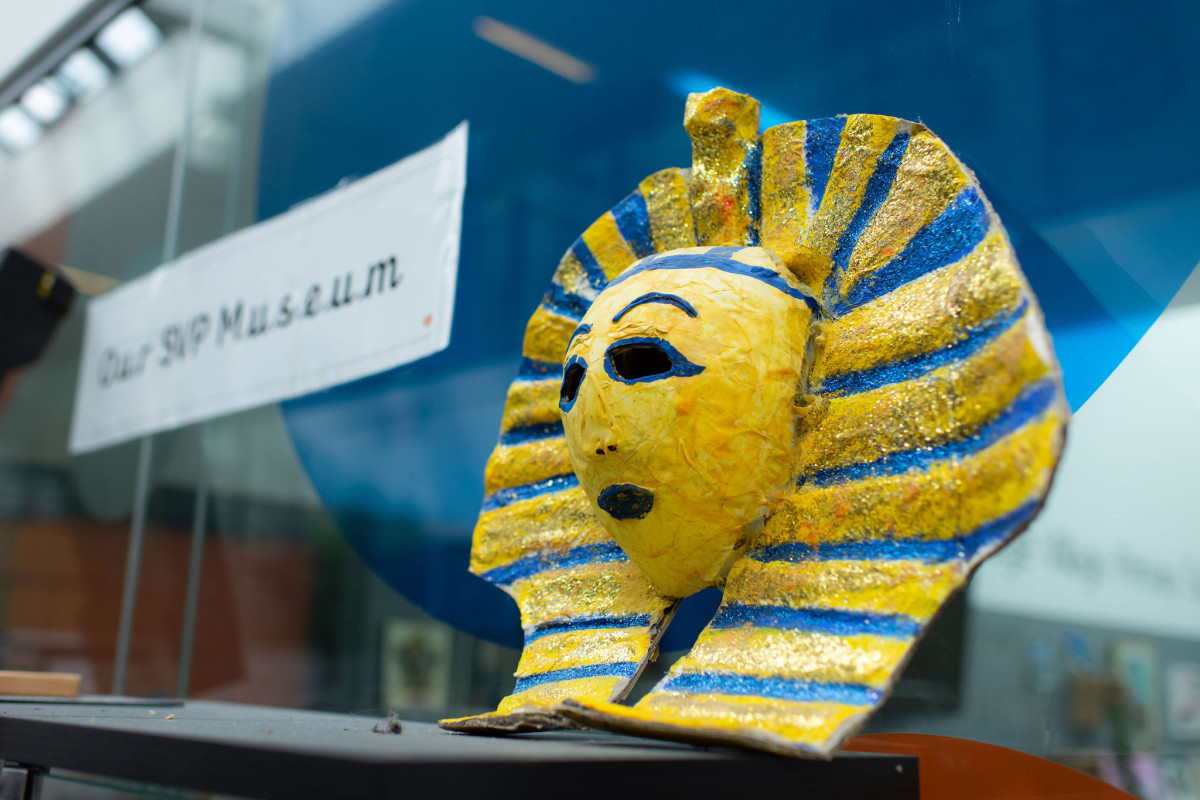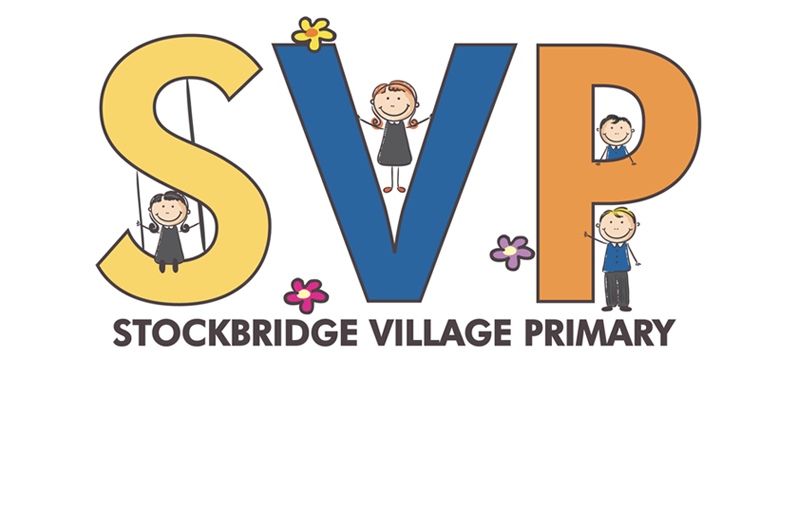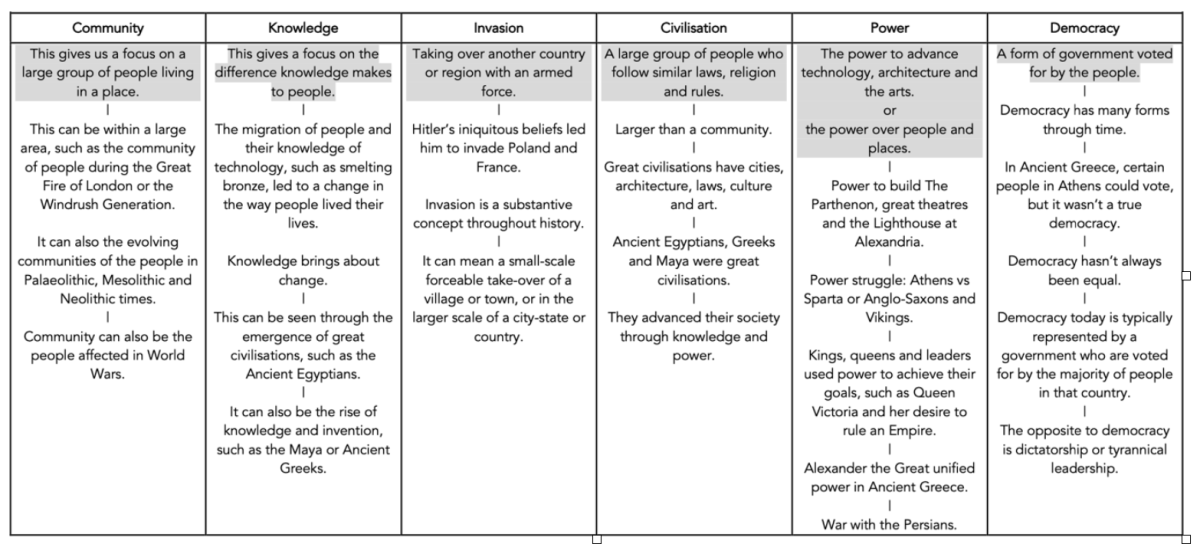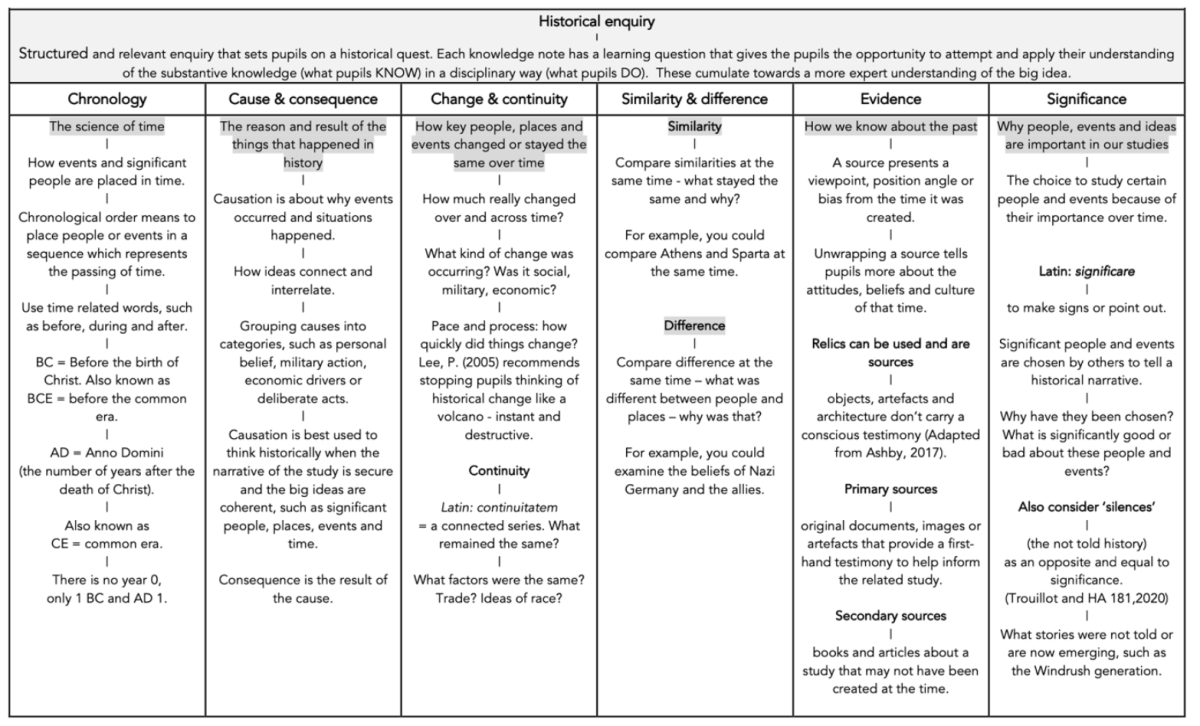History

History at Stockbridge Village Primary
“You have to know the past to understand the present.” – Carl Sagan
As Historians, children must have a coherent, chronological understanding of Britain and the wider world. History is complex and children will be taught to understand that significant individuals, events and eras have a massive impact on the modern world, on people’s perceptions and the political landscape.
At SVP, we ensure that children learn about a wide range of historical eras, events and significant people. We do this by:
1. Ensuring that the children have a substantial bank of substantive knowledge- this is the subject knowledge and vocabulary required to learn about the past. Once children have a bank of knowledge, we can challenge common misconceptions about History and use these as non-examples against known evidence-based sources. We do this by using substantive concepts known as big ideas:
2. The children use disciplinary knowledge to explore and expand on substantive knowledge. This is known is Historical Enquiry. This is the use of knowledge to construct understanding through historical claims, arguments and accounts. We use six strands of historical enquiry to ensure children become experts.
Children are taught using the History SOW which ensures that we have full coverage of the National Curriculum whilst embedding pedagogical principles that ensure children can remember and retrieve information.
End Points
After each lesson, we use cumulative quizzes to ensure children have gained the required knowledge. Each unit of work has a series of end points with essential and desirable knowledge.
Vocabulary
Each unit of work has a range of Tier Two words (words that can be used across the curriculum) and Tier Three words (words that are subject specific). Children are taught new vocabulary prior to and during the lesson.
See the link below for end points and vocabulary for each unit.
EYFS
History draws upon prior learning, wherever the content is taught. For example, in the EYFS, pupils may learn about the past and present through daily activities, exploring through change, and understanding more about the lives of others through books and visitors as well as their own experiences. These experiences are drawn upon and used to position new learning in KS1.
Key Stage One
In Key Stage One, children begin to develop their sense of historical understanding by exploring changes in their lifetime, significant individuals and events beyond their lifetime. Children also learn about changes to their locality.
Lower Key Stage Two
In Lower Key Stage Two, children explore Britain chronologically. Starting at the Stone-Age, children learn about how advances in technology led to a change in human behaviour, turning from nomadic to establishing settlements during the Bronze and Iron Ages.
Children are taught about the Roman invasion of Britain and how technology changed during this era. They also learn about the Roman’s struggles with various tribes and their leaders such as Queen Boudicca. After the Romans, children learn about the Anglos-Saxons and their conflicts with the Vikings.
In Year Four, children learn about the ancient civilisation of Egypt. This will visit important concepts such as civilisation that the children can revisit in UKS2.
Upper Key Stage Two
In Upper Key Stage Two, children study the Maya and compare this period with the Anglo-Saxon’s. The exploration of different civilisations continues with Ancient Greece, children learn about democracy and how it established in Ancient Greece.
In Year Six, children re-focus on Britain beyond the Anglo-Saxon period with a study of five monarchs. The children then study the Battle of Britain and explore how WWII changed our local area.


